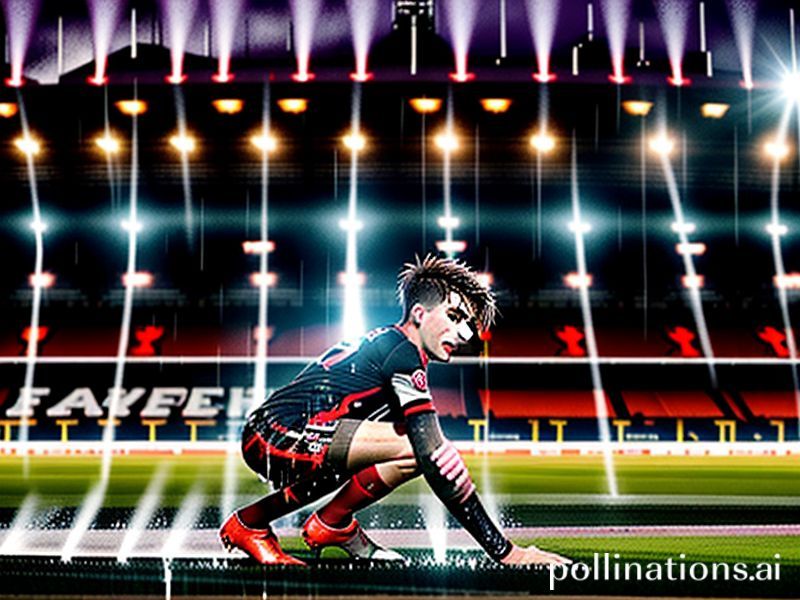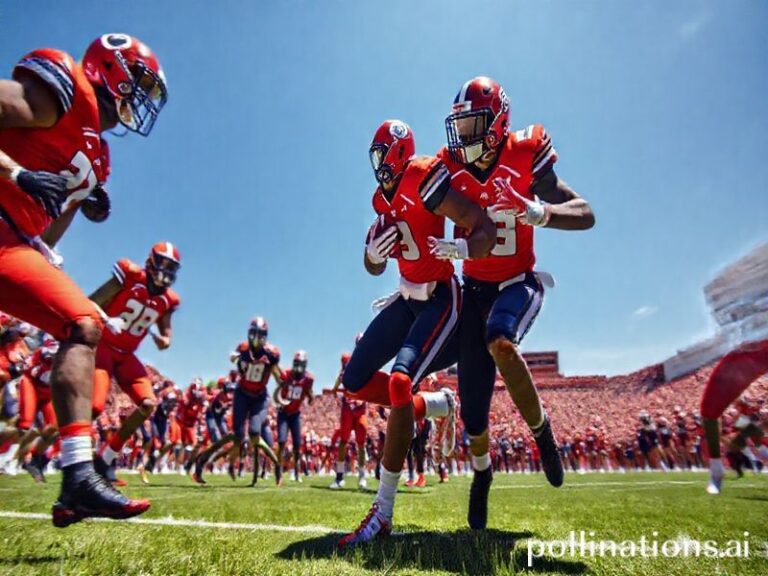Kai Havertz: The £71 Million Rorschach Test Confusing the Entire Planet
Kai Havertz, Human Rorschach Test: How One Languid German Became a Global Mirror for Our Own Existential Panic
by Dave’s Locker Foreign Desk
There’s a moment, usually around the 73rd minute, when Kai Havertz decides to jog rather than sprint, and 4.2 billion television pixels collectively wonder if that’s sloth, Zen, or a coded protest against late-stage capitalism. From Lagos sports bars at 2 a.m. to Tokyo betting parlors hazy with cigarette sacrament, the same question ricochets across currencies and time zones: is the boy brilliant or just aesthetically unemployable?
The world has always outsourced its self-loathing to athletes, but rarely has one player been such an efficient vessel for planetary anxiety. Havertz is German engineering wrapped in millennial malaise: tall enough to intimidate, fragile enough to apologize. He cost Chelsea £71 million in 2020—roughly the GDP of the Solomon Islands—yet often drifts through matches like a PhD student who’s read too much Baudrillard and now doubts the ontological status of goals. To Premier League die-hards, that languor is treason; to Bundesliga nostalgists, it’s a moral failing on par with preferring oat milk in your coffee.
But zoom out. In Singapore, where sovereign wealth funds treat football clubs like gilt-edged index funds, Havertz is a walking derivative—his valuation rising and falling on vibes, memes, and the Premier League’s broadcast-rights footprint across Southeast Asia. Every misplaced touch is instantly GIF’d, monetized, and debated by Manila call-center agents on their smoke break, who understand that a German attacking midfielder is now a more reliable barometer of geopolitical soft power than a NATO summit communiqué.
The irony, of course, is that Havertz himself seems baffled by the symbolism. He speaks in the polite monotone of someone who’s been media-trained since kindergarten, which only encourages the global projection industry. When he says, “I try to give my best,” a Lagos podcast host hears late-colonial condescension; a São Paulo data analyst runs sentiment analysis and discovers the phrase correlates with a 12 % dip in Chelsea’s share price among Brazilian retail investors. Meanwhile, a café in Beirut live-tweets his every feint because, in a country where the currency has evaporated, watching a 23-year-old millionaire miscontrol a ball is the closest thing available to civic solidarity.
Europe sees him through the lens of post-industrial decay. Arsenal fans—now his newest foster family—hope Mikel Arteta can reprogram him into a false-nine, false-ten, or possibly a false consciousness. In Madrid, pundits compare his movement to a malfunctioning Roomba, which is only half an insult; Spain, after all, has entire ghost towns whose last export was human talent. Even the Qatari owners of PSG reportedly ran the numbers, wondering if Havertz’s aura might finally make the Champions League feel less like a tax write-off and more like destiny.
China, ever pragmatic, has turned him into a cautionary tale on its state-run football academies: “See, even with perfect nutrition and European coaching, the soul still wanders.” Meanwhile, American venture capitalists discuss “the Havertz Paradox” on Clubhouse—how to invest in potential that refuses to scale. If you squint, he’s the only European who can unite the SEC, the Bundesliga, and a Bahraini sovereign fund in mutual confusion.
And yet, once every few games, he produces a finish so nonchalant it feels like sarcasm—a chip that lands with the same gentle mockery the universe uses on our retirement plans. In that instant, time zones collapse, the global feed holds its breath, and for 1.3 seconds humanity is synchronized in collective disbelief. Then the replay loops, the algorithms monetize the dopamine, and we’re back to arguing whether he’s worth the amortization.
So what does Kai Havertz actually mean? Nothing, and therefore everything. He is the blank stare we paste onto our own creeping dread that maybe, just maybe, none of us are living up to our transfer fee. And until he—or we—figure it out, the planet will keep refreshing its feed, hoping the next touch redeems not just a footballer, but the entire absurd experiment of being alive in the 21st century.







